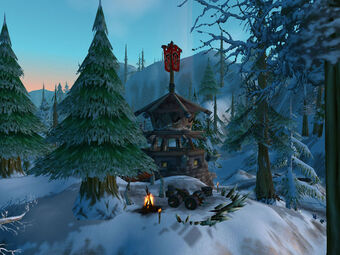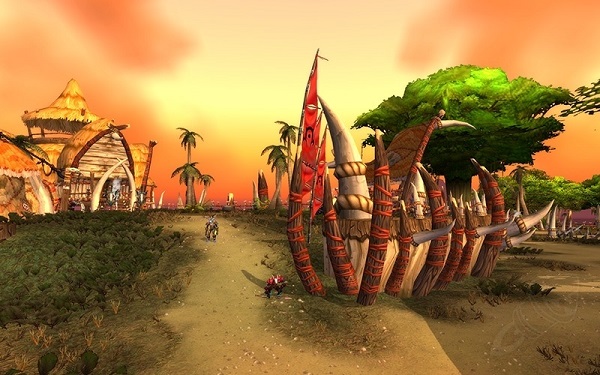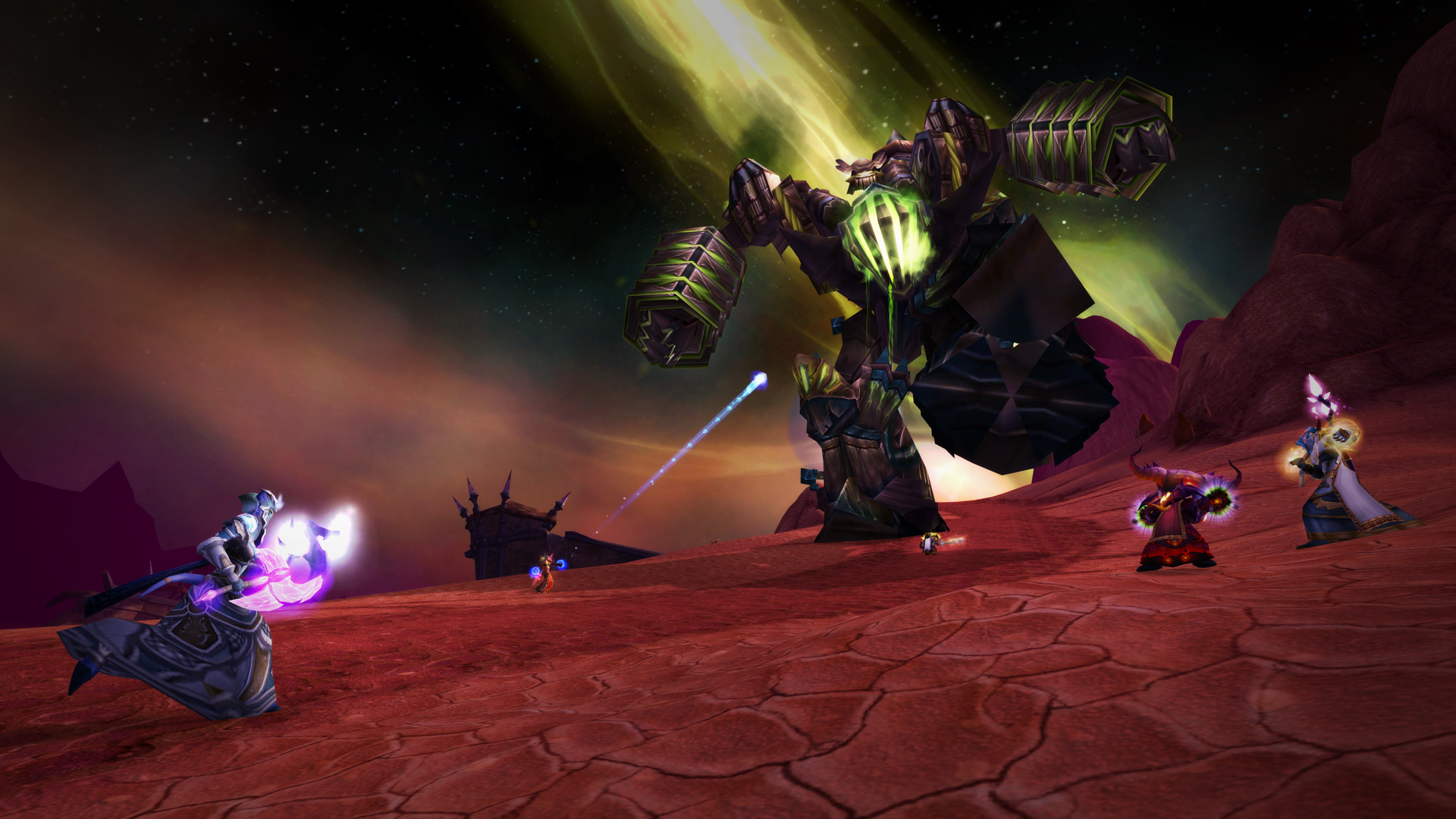Classic WoW: Get to know the similarities and differences between Dungeons & Raids
As far as I know, the players of Classic WoW are mostly old players. Today mmosky.com would like to share the Classic World of Warcraft endgame. I hope to provide some help to new players.

As the player progresses through the levels, they will receive many missions around raids and advanced dungeons. You've been doing it since you were level 15, but raids are fairly new, with most of them accessible as late as level 55. I believe most new players already know how to manage dungeons.
Dungeons and raids can be overwhelmingly similar to each other in Classic World Of Warcraft, but they also have some important differences, here are five crucial differences to keep in mind.
1. Same: Boss Fighting Strategies
Players should notice that starting from low-level dungeons, the combat mechanics of each boss are slightly different. As the level of dungeons gets higher and higher, the fighting mechanism of the boss will increase.
Some boss battles require your team to plan ahead. For example, class equipment. Sally Whitemane is one of the first bosses you'll encounter with powers like Sleep and Resurrection. This might also depend on the composition of your group, for example, if you have a Warlocks that can Banish demons or Priests that can Shackle.
2. Different: Class Assignments
For example, Mages are just DPS, and their spec doesn't really matter at this point, but a fire Mage won't be very useful in a place like Molten Core. In dungeons, your role is implied by your class and little more, with combo classes like Shamans, Druids or Paladins the only classes at lower levels to take on more complicated roles.
In a dungeon, a Warlock might give the Healer the soulstone just to be nice but it's not necessarily a requirement. In a raid, on the other hand, warlocks are given soulstone assignments along with providing healthstones.
3. The Same: Know Your Role
Whether you're a Tank, Healer, throwing DPS or doing a combination of any class roles, the rules are generally the same in a dungeon as for a raid, players all need to know your role. In both dungeons and raids, you might have a certain place to stand, something to shackle or banish, or a certain player to heal or buff. Although these dynamics are more common raids, they happen a lot in dungeons like Stratholme and Blackrock Depths. The mechanics for a raid are more precise, meaning you often have a more elaborate plan, but this basic principle remains unchanged.
Please keep checking back for more news to WoW Classic on MMOSKY. If you are tired of farming Classic WoW gold, you can buy Classic WoW gold from a trustworthy site. MMosky is your first choice, we won't let you down.
4. Different: Bag Space
When you are ready to go to dungeons, i recommend that you empty your backpack before departure, plenty of low level or useless items will drop that you can sell for gold and some unwanted equipment can also be broken down into materials.
In raids, are on a totally different level, you need to bring a lot with you, and consumables like potions and buff foods are just the tip of that iceberg. Combo classes might even need space for another set of armor depending on their roles, just like Tank.
5. Same: Keys
The main way to get the dungeon keys is the mission or the boss in the dungeon. Keys are mainly used to open the doors of dungeons. Some doors can be opened by Rogue, but some doors must be opened by keys. At first, the key was to occupy a backpack grid. Later, the system added a key chain to release the backpack. All of the keys available for both dungeons and raids have an Engineering or Lockpick workaround, which is another thing both dungeons and raids have in common when you're talking about keys.
6. Different: Attunements
One of the new things that hit you about raids is the need to get "attuned." Players often don't even hear this word until they get closer to the level cap. You can walk into most dungeons without even thinking about it, although level restrictions might keep you out, you never need attunement to get into a raid, with Upper Blackrock Spire being a possible exception, where you need a key instead. The key mission of Upper Blackrock Spire is also a relatively tedious mission chain.
Some are on the easier side, like the Molten Core attunement, which consists of touching a rock to finish a quest. No, really, that's it. Compare that to the elaborate Onyxia attunement, which consists of a long quest chain and several visits to Upper Blackrock Spire.

7. The Same: Loot
This references the protocol when something rare or valuable drops. You'll hear some discussions about some players' shameful behavior. Therefore, the drop allocation problem is one that needs to be agreed in advance before the team to go.
In certain raids, the items that drop from bosses tend to be extremely popular, groups will designate a Master Looter to ensure the right players gets the right stuff. This tactic can be used in dungeons as well but it's not as common.
8. Different: Number Of People
This one is obvious, but we still have to point it out. It's worthy to note that you can bring a raid group into a variety of places, including dungeons if you have several friends that want to go. However, you can't always finish the same quests as a raid group, so that doesn't always work and dungeons are overwhelmingly for five people. Raids, on the other hand, start with 10-player at Upper Blackrock Spire to 40 for Molten Core. Considering how complex a raid can be, you can see it might be daunting to put together a Pick Up Group (PUG) for a raid in Classic but in the modern retail version of the game, it's possible.
9. Same: Grinding Rep

It really impresses the Hydraxian Waterlords when you tear through Molten Core. The Argent Dawn rewards rep for turning in Scourgestones which drop from undead all over the Plaguelands, including the Stratholme and Scholomance, and the Timbermaw Hold Reputation, the Timbermaw Furbolgs inhabit two areas: Azshara and Felwood and are believed to be the last uncorrupted furbolg tribe to escape demonic corruption. With deep roots in shamanistic traditions, they must earn your trust in order to befriend you.
10. Different: Real-Time Communication
The biggest differences between dungeons and raids are found in the more complex trash and boss fights. If things don't go as planned, such as losing a Tank or Healer very early in the encounter, your group will have to improvise. Being able to communicate with the other members of your party in real-time is always helpful, but in dungeons, it's an option whereas in raids it's essential. That works a lot better of you can talk about it in real-time instead of typing.








